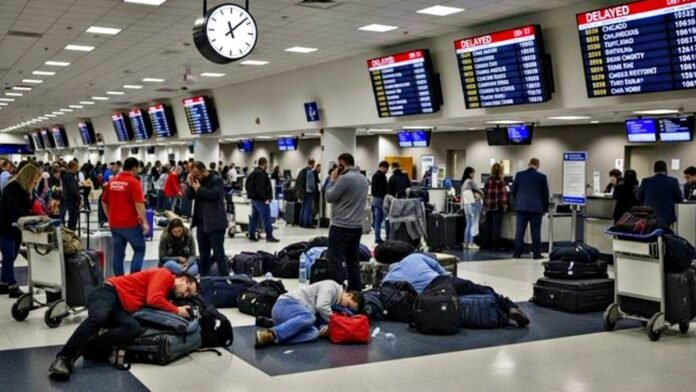
Key Points
- A major telecommunications outage caused chaos at Dallas-area airports on Friday, disrupting more than 1,800 flights.
- The Federal Aviation Administration (FAA) issued ground stops for Dallas-Fort Worth International (DFW) and Dallas Love Field (DAL) after air traffic controllers lost radar and communications.
- The issue was traced to a failure in a local telephone company’s equipment, not the FAA’s own systems.
- American Airlines and Southwest Airlines were heavily impacted, canceling hundreds of flights and delaying over a thousand combined.
- The incident is the latest in a series of technical failures highlighting the vulnerability of the nation’s aging air traffic control infrastructure.
Dallas: Air travel in North Texas was thrown into disarray on Friday, September 19, after a major telecommunications equipment failure prompted the Federal Aviation Administration (FAA) to halt flights at two of the nation’s busiest airports, stranding thousands of passengers.
The disruption began in the afternoon, affecting Dallas-Fort Worth International Airport (DFW), a primary hub for American Airlines, and Dallas Love Field (DAL), a major base for Southwest Airlines. The FAA implemented ground stops, bringing incoming air traffic to a standstill for hours. In total, more than 1,800 flights were delayed and hundreds were canceled across the two airports.
What Caused the Outage?
The FAA confirmed the problem was not with its own equipment but stemmed from an outage at a local telephone service provider. This failure caused air traffic controllers at the Dallas Terminal Radar Approach Control (TRACON) facility to lose both radar data and critical communications with aircraft. One controller was heard telling a pilot, “The Metroplex is out of service and is halted,” referencing a similar incident a few days prior caused by a severed line.
The impact was immediate and widespread:
- American Airlines canceled over 200 flights and delayed more than 500, affecting a quarter of its daily schedule.
- Southwest Airlines saw over 1,100 flights delayed, which accounted for 27% of its operations for the day.
Both airlines issued travel waivers, allowing affected passengers to change their flights without a fee.
A System Under Strain
This event is the latest in a string of high-profile technical failures that have plagued the U.S. air traffic control system. Just one day earlier, on Thursday, flights at Denver International Airport were slowed due to an automation system malfunction that required controllers to manually hand off flights.
Concerns over the nation’s aging aviation infrastructure have been growing. FAA officials have admitted that technical glitches occur almost daily. These recurring problems, along with severe staffing shortages and a series of near-miss incidents, prompted Congress to approve an initial $12.5 billion in funding in July to overhaul the system, though the modernization effort is expected to take years.


















































